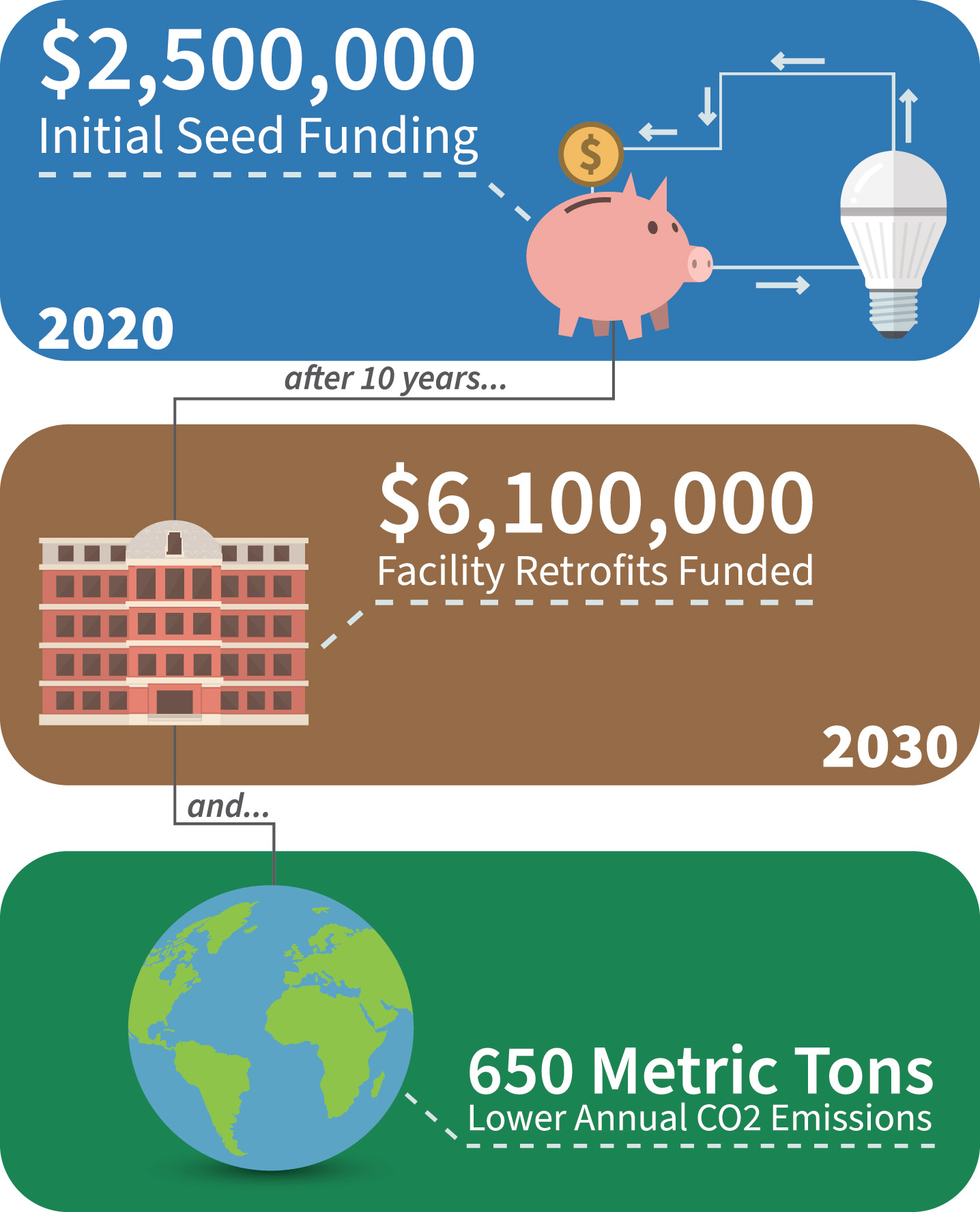Gifting GreenGenerous Parents Power Sustainability on CampusVassar’s Green Reinvestment Fund
Gifting GreenGenerous Parents Power Sustainability on CampusVassar’s Green Reinvestment Fund
In recent months, Vassar has been the beneficiary of several gifts related to sustainability, the environment, and climate change. This is the first in an occasional series spotlighting these acts of generosity, and the varied ways in which they are helping the College achieve its goals.
In the half-century that has passed since the original Earth Day, those who oppose addressing environmental concerns frequently have advanced the notion that taking action to do so is somehow at odds with good business practice. But Vassar’s Green Reinvestment Fund (GRF), an internal revolving loan fund for the College’s energy efficiency projects, belies the idea that saving the earth and smart economics are incongruent. And while Vassar is not the only institution of higher education to create this sort of revolving fund, the generosity of donors already has made Vassar’s GRF one of the largest among its peer group.

The idea is as simple as it is innovative: a committee composed of the College’s Director of Sustainability, Faculty Sustainability Coordinator, campus administrators, and a student leader selects energy-efficiency projects that meet a variety of criteria. These include, notably, the period of time it takes for the project to pay for itself, and the impact it will have toward Vassar’s goal of being carbon-neutral by 2030. Cost savings from the selected projects are repaid to the GRF, until the original project cost—as well as an additional 10 percent in further savings—have replenished the fund. All further savings support campus operations at large.
Vassar has an Energy Master Plan that already has identified more than $10 million in energy-efficiency projects with short payback periods. The Green Reinvestment Fund has an initial target of $2.5 million for seed funding. Thanks to the generosity of several donors, Vassar already has received $750,000 in commitments for the fund, including $300,000 already provided for the current fiscal year; only two of the College’s peer schools have a larger fund at this point.
The idea caught the attention—and the imagination—of Vassar parents Andreas Stavropoulos and Christy Dosiou (P’22), who became anchor donors to the fund. “Education is very high on our list—it’s number 1, 2, and 3, and probably 8 out of our top 10,” says Stavropoulos. “We both grew up in Greece, and were only able to attend school in the U.S. through the generosity of others, and we want to pay it forward.”

Having established an endowed scholarship fund, they were looking for other projects to support at Vassar. “We see education as a great equalizer,” explains Dosiou. “It opens people’s minds at a time of deep polarization.” When Stavropoulos, a partner in a venture capital firm, and Dosiou, an endocrinologist, came to Vassar in 2019 to participate in the Sophomore Career Connections program, they met with President Elizabeth Bradley, who told them about the Green Reinvestment Fund.
“Sustainability is obviously a very big issue, and we were glad to see how seriously Vassar as a school is taking it,” says Dosiou. “We wanted to do something truly innovative.”
Stavropoulos sees the GRF as “playing with the idea of sustainability itself, since it’s self-supporting. Creating a culture of a fund that can invest in programs that sustainably can impact the campus, not just ‘one and done,’ felt like great leverage.” He adds that the participation of students in selecting projects was a key attraction: “It presents an opportunity for current students in producing, evaluating, and picking how the investments would get prioritized, evaluating from a return-on-investment perspective for lasting economic impact. That’s a good skill that gets lost too often, and that everyone should have.”
Vassar’s Director of Sustainability, Micah Kenfield, is deeply encouraged that the GRF has attracted such strong initial support, and expresses gratitude to the first donors, including Stavropoulos and Dosiou. “This seed funding is letting us address some of our thorniest sustainability challenges in a fiscally responsible, self-sustaining way,” he says, noting the wider impact: “Vassar’s decarbonization strategy, empowered by tools like the Green Reinvestment Fund, isn’t just our own path to carbon neutrality. It’s a replicable model that our peers can follow.”